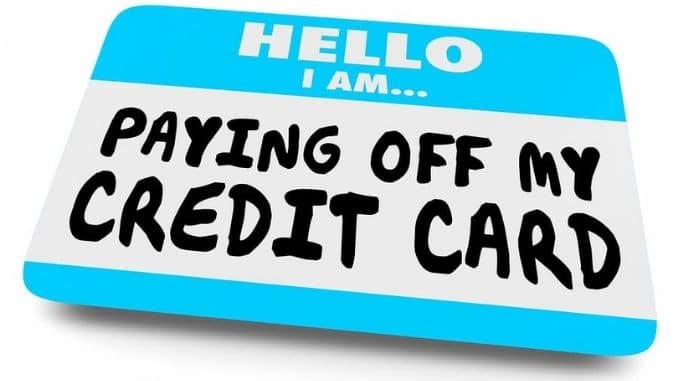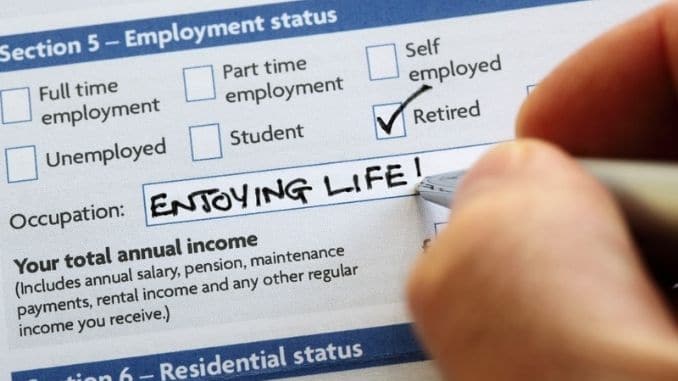
Retirement is coming for all of us. We have to prepare and save during our working years to survive when we can no longer work or no longer wish to work. While everyone knows that saving for retirement is essential, not everyone is doing it. Most people who aren’t saving don’t know where to begin.
Because we want you to be prepared for retirement, we sought out the advice of Chris Hogan, the host of “The Chris Hogan Show” and author of the number one national bestselling book, “Everyday Millionaires: How Ordinary People Built Extraordinary Wealth―And How You Can Too.”
Hogan was kind enough to share some excellent and practical tips with us about how to prepare for retirement and save money for the future. His common-sense approach will give you some insight and encouragement ― no matter where you are in your retirement timeline.
1. Realize That the Government Won’t Save You in Your Retirement Years
Hogan says, “A common mistake I see people make is thinking they don’t need to worry too much about funding their retirement because Social Security will be there to save the day.” The truth is, we cannot depend on the government to take care of us as we retire. Hogan gave us some current United States Social Security Administration data. “Right now, the monthly Social Security benefit is around $1,413.” That adds up to $16,956 annually. He also brought our attention to the fact that $16,956 per year is just $46 over the poverty line designation for a family of two.
The future availability of Social Security benefits is uncertain, at best. So, counting on any particular amount could let you down. Hogan admonished, “If you’re relying on Social Security to fund your retirement dreams, you’re setting yourself up for disaster. Instead let [your Social Security income] be the icing on the cake, not the cake itself.” If your government offers you some monthly cash to help out in your retirement years, consider it a bonus. However, be assured, the government is not likely to supply all of your retirement needs.
2. Get on a Budget and Out of Debt ASAP
Hogan, who works alongside financial guru Dave Ramsey, recommends getting yourself out of hock before you start saving money toward retirement. He said, “Before you can invest for retirement, you need an emergency fund of three to six months of expenses, to be out of debt and on a monthly budget.”
Hogan clarified that by debt, he means consumer debt like credit cards, car loans and personal loans, not home mortgages. Work hard to get your loans paid off and your debts cleared. Then, give up your credit cards and start saving.
3. Start Planning for Retirement Right Now
There’s hope ― even for those of us who are behind in saving. It’s better to begin saving for retirement at an early age, like 25. If you’re 25 and reading this article, don’t have another meal out until you’ve made a plan and begun saving for retirement. However, if you’re 55 years old and you still haven’t started planning for retirement, you can start right now. Hogan said, “No matter your age, you need to be thinking about your retirement plans ― and the money it’ll take to live them out. Get on a budget, get out of debt and seek out an investing pro to help you. Stay focused and be intentional with your saving, investing and spending.”
4. Take Advantage of Your Company’s Retirement Savings Account or Open a Tax-free Savings Account
Once you’re free from unsecured debts and you have an emergency fund, it’s time to start investing in your company’s retirement plan.
In the U.S., your company may have a 401(k) plan. In Canada, there’s a similar program called the registered retirement savings account (RRSA). These are both great ways to save for retirement with your gross earnings, using pre-taxed dollars. Hogan recommends investing 15 percent of your gross income into your company’s retirement program.
If your company doesn’t offer a retirement program or you’re self-employed, open a tax-free savings account (TFSA). In the U.S., it’s called a Roth IRA (individual retirement account). Hogan said, “With this option, you’ll pay taxes on the money before you put it into the account. That means the money grows tax-free, and you don’t pay any taxes on it when you take it out in retirement.”
You can also use a combination of retirement savings accounts. If you work for a company that offers a retirement savings option and you’ve maxed out your allowable contributions for the year, you can place your additional available funds into tax-free retirement savings account like a Roth IRA or TFSA.
5. You Can Change Your Path
Some people who have spent their lives not saving for retirement may feel like it’s too late to start. Hogan says that it’s not too late. “It’s a scary feeling when retirement is around the corner, and you don’t think you have enough money saved for that chapter of life. But don’t be paralyzed by fear. Instead, have a plan.”
If you’re over the age of 50 in the U.S., Hogan said, “Start with cranking up your contributions. The IRS will allow you to make annual ‘catch-up’ contributions.” There are other ways you can change your situation as well. Hogan suggested selling your home and downsizing, then using the equity to invest. Take a second job or sell things you don’t need to bring in extra money to throw in that retirement account. He said, “Cut down your extras and put the money toward your savings.” You’ll be surprised at how much you can save when your mind is focused on a goal for retirement. Hogan said, “Remember, the sooner you get started, the more time you have for compound interest to work its magic.”
6. Save Toward Retirement Before You Save for Your Child’s College Education
Of course, we all want the very best for our kids. Their higher education is incredibly important. But Hogan advises against throwing all of your money into a pot for your children’s college education and neglecting your retirement fund.
Hogan said, “Remember, your kids can apply for grants, scholarships and work their way through college. There are other ways to pay. When it comes to your retirement, there’s no scholarship or grant program. I want you to be able to be a blessing, not a burden to your children later in life.”
Of course, if you have the means and desire, you can additionally put away money for your kids to attend college. Just make sure that you’re investing 15 percent of your income into your retirement account first to ensure that you stay on track for the future.
7. Treat Your Retirement Savings Like a Regular Monthly Bill
When you’re debt-free and ready to save for retirement, you’ve got to list your retirement savings in the same category as your phone bill, electric bill and grocery bill. Hogan said, “Treat retirement like any other expense. Don’t wait until all the other bills are paid to set aside money for retirement. When you create your budget, make sure to include retirement savings as one of the essentials.” He added, “You may have to start small, but start now and don’t stop.”
8. Use Your Home Equity Wisely
If you’re a homeowner, there are lots of lending institutions that may be offering you home equity conversion mortgages, better known as reverse mortgages. The lending institutions are not providing you these services to help you out. They’re selling these products to make a ton of cash by taking the home equity that you’ve built over the years.
When we asked Hogan about reverse mortgages, he said, “A reverse mortgage is a bad idea. While it may sound simple, it’s not. With a reverse mortgage, you’re putting yourself back in debt ― deep debt. Sure, you don’t have to pay a monthly mortgage, but that’s the least of your worries. Not only will you be charged interest every month on the money you receive, but you’ll also get fleeced with outrageous fees.”
If your home is paid off or you have significant equity in your home, you have better options than a reverse mortgage. You can sell the house entirely and buy something smaller, leaving you with a pile of cash to invest in your retirement account. You can also rent out a portion of the home for extra income. Renting out a room may sound scary, but you can hire a property management company or use thorough background checking tools to help you weed out unwanted candidates. Review the specific real estate laws in your area before you start the process.
Prepare Yourself for Retirement
One day, you’ll want to stop working, or you’ll be physically unable to work. When that day comes, you’ll still need to eat, drink clean water, clothe yourself, have access to medication and live in a safe home. You’ll also need a way to pay for those things.
If you want to enjoy the years to come, without having to depend on your children, food pantries, government help or crowdfunding, get a plan together and start moving forward on your retirement goals today.
For your guide to the foods that will help heal your body, check out The Best Foods that Rapidly Slim & Heal in 7 Days, here!








